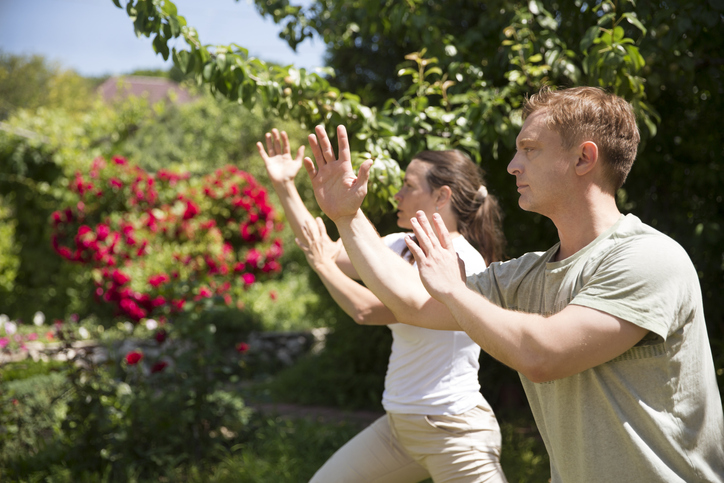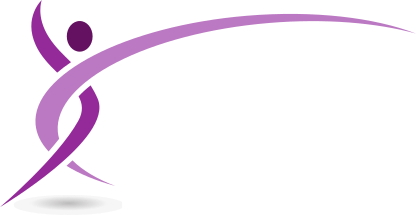
Depression is, unfortunately, fairly common. Approximately 5% of adults have the condition, according to the World Health Organization. It affects people of all ages, nationalities and ethnicities, those who are well off and those who have little, and those in between.
Depression is not simply low mood and it cannot be classified as one single disorder. There are different degrees and multiple symptoms. It can be a very serious health condition as it takes the joy out of life and interferes with daily functioning. Symptoms may include overwhelming feelings of hopelessness or struggles with worry or anxiety. In addition, low energy, difficulty focusing, and problems connecting with others are common and depression can also worsen other underlying medical conditions (co-morbidities). .
Depressive symptoms are usually defined as “depressed mood, loss of interest or pleasure, decreased energy, feelings of guilt or low self-worth, disturbed sleep or appetite, and poor concentration”. Depression is often accompanied by chronic or recurring anxiety. Sadly, these illnesses usually lead to a decreased quality of life and insufficient self care.
Treatment and interventions
Treatment for depression usually consists of behavioural activation, cognitive behavioural therapy, interpersonal psychotherapy, and/or antidepressant medication. Unfortunately, many treatments have a high non-response and relapse rate, and most pharmacologic treatments have undesirable side effects.
Exercise is also frequently recommended in order to alleviate depression. Fortunately, it has been shown that Tai Chi and Qigong can help to improve mood, as well as decrease anxiety and reduce depressive symptoms.
Recent Research
There have been numerous well-designed studies and meta-analyses done on depression and/or anxiety regarding the benefits of Tai Chi. Evidence exists that Tai Chi is an effective, non-pharmacologic, treatment option for improving depression and/or anxiety in older adults. Tai Chi and/or Qigong, can significantly regulate emotions and relieve the symptoms of mood disorders in adults of any age. These benefits are not exclusive to “older” adults!
A study from the University of Arizona found that Tai Chi participants showed a decrease in depression, anxiety, and stress. The study author, Dr. Ruth Taylor-Piliae stated “Tai Chi practice allows the individual to quiet the mind by dwelling in the present and setting aside unnecessary negative emotions, such as depression.” Moreover, an article in Complementary Therapies in Clinical Practice, February 2022 indicated that Tai Chi positively affected both anxiety and depression for patients dealing with cancer, stroke, and heart failure. Ecnouragingly, a study published in July 2022 in Integrative Medicine Reports noted that the study subjects enjoyed significant reductions in depression, anxiety, and insomnia.
A 2019 study looked at Clinical Trials to determine why Tai Chi alleviates depressive symptoms. They believe that it may “modulate the activity and connectivity of key brain regions”. These regions may regulate mood, modulate the autonomic nervous system, reduce “neuro-inflammatory sensitization”, modulate gray matter volume of the hippocampus, and regulate “hippocampal neurogenesis”. Tai Chi is a mild to moderate intensity exercise which, in turn reduces stress and modulates the inflammation process. Rarely recognized, Tai Chi can also increase vagal modulation in elderly individuals.
One meta-analysis published in the Int J Environ Res Public Health. 2023 Feb, concluded that non-pharmacological interventions are more effective for those with mild forms of depression. Tai Chi and Qigong were found to decrease depressive symptoms. They are also cost effective, have lower to no side effects, and have low relapse rates.
Recently, a group of Chinese scientists undertook a meta-analysis to determine which mind/body exercises were the most effective for older adults with depression and/or anxiety. Research determined that Tai Chi’s slow, fluid movements, plus deep breathing, contributed to lower stress levels, reduced tension, and improved mental well-being. Tai Chi and Qigong showed better improvement in anxiety reduction than other exercises. Participants benefited by improved body awareness and mind/body connection.
Is Tai Chi good for depression?
Most research studies and anecdotal evidence support the notion.
One reasons for this is that the meditative aspect improves the mental and emotional state. Regular practice can even help “rewire the brain” in response to certain experiences. These new connections strengthen our emotional stability, meaning our brains are better able to cope with daily stresses. We are also able to feel more in control during difficult times or situations. The “moving meditation” is what affects our nervous system and brain. Tai Chi clears the monkey mind, decreases anxiety, and calms the spirit. In fact, research shows that those who meditate are better able to redirect negative and harmful thoughts altogether.
Tai Chi uses slow, deep breathing along with flowing movements, attention, and imagery to relax, strengthen, and integrate/harmonize the body and the mind. Practitioners focus on their body postures and movements, while regulating their breathing. This takes the focus away from their “stressor”.
Interestingly, Dr. Albert Yeung, a Tai Chi practitioner and researcher, developed Tai Chi for Mood (Tai ChiM). He developed this Form specifically for individuals with mood disorders. This adapted form excludes Tai Chi’s complex transitions between movements, which makes it easier to learn and would probably encourage participants to continue practicing the Form. The focus is more on relaxation and less on physical strength.
What about Qi Gong?
Qi Gong emphasizes breath regulation and balancing internal energy. It is effective in improving depression and anxiety because it focuses on self-regulation, therefore emotional stability is enhanced. Participants learn to cope with any anxious emotions before they become problematic. One especially effective Qi Gong exercise is Baduanjin (Eight Pieces of Brocade). Baduanjin consists of eight postures which makes it a simpler mind/body exercise to learn. It is easily practiced by older adults (even those with cognitive decline), most of those with disabilities, and can be done at home in very little space. Researchers found that Baduanjin produces even “greater and more extensive improvements in Wechsler Memory Scale (WMS) subscores and gray matter brain volume changes” than Tai Chi when practiced by older (healthy) adults.
Tai Chi as therapy
Psychologists are often encouraged to incorporate Tai Chi into their clinical practice because it “can help reduce stress and anxiety, alleviate depression”. But, as the Tai Chi community will point out, there is no quick route to this. It takes years to understand Tai Chi and a short seminar or course is NOT going to make a psychologist into a skilled practitioner!
According to some researchers, it may be beneficial to create a Tai Chi and/or Qigong “regimen/protocol” tailored for specific individuals/populations with different disorders in the future. Others suggest perhaps combining Tai Chi, Qigong with other mind-body exercises may create a new intervention which incorporates the advantages of each, in order to enhance modulation effects.
The Movement In Mind approach
Fortunately, at Movement In Mind, our lead practitioner is both a qualified psychotherapist and an experienced Tai Chi & Qi Gong Instructor. Therefore, we recognise the potential in using the practices as adjuncts to antidepressant therapy, health education, and psychotherapy and we are considering the possibility of offering sessions tailored specifically to mental health conditions. We already incorporate Tai Chi into the therapy practice, and teach Tai Chi in a way which makes the most of its therapeutic aspects.
An important advantage of Tai Chi and/or Qi Gong as an intervention or to augment other treatments, is the lack of adverse side effects. Both are appropriate and beneficial for people of all ages, and most physical conditions. Movements can be done standing or sitting and even be done lying down. It requires very little physical space and that makes it accessible to all via our online programme.
We offer one to one sessions, taking into account the individuals personal situation, including their likes and dislikes. In addition, our in person sessions offer different approaches, recognising that some may prefer the deep breathing and slow movements of Tai Chi, while others may gravitate to the breath regulation and focus of Qi Gong. For those who prefer a combination of mind/body exercises, intervention plans can be personalized for each individual.
